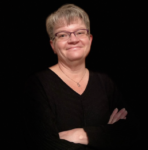CHARLESTON, W.Va. — Speakers, including several local religious leaders, pushed back on a House bill aimed at keeping homeless people away from schools and day cares.

“HB 4753 is an infringement on the first amendment rights people of faith, who have been practicing their faith to teach and minister to the homeless by providing temporary shelter,” said Jeff Allen, executive director of the West Virginia Council of Churches. He suggested further study of the issue would be more appropriate.
He spoke this morning at a public hearing about HB 4753, which would aim to keep activities with homeless people at least 1,000 feet away from schools and day care locations. Most speakers opposed the bill.
Most of the text of the bill is:
The Legislature finds that unregulated establishment of homeless encampments in areas located near where children congregate and attend school creates a public health and safety hazard, therefore, the siting or establishment of a homeless encampment which includes, but not limited to, outdoor encampments, temporary small homes on-site, tiny homes sheltering homeless persons, or care or feeding areas for homeless persons, within one thousand five hundred feet of a public or private school, or licensed child care center is prohibited.
Heather Olcott, whose daughter attends a downtown Charleston school, described regular encounters with homeless people. She spoke in support of the bill.
“These incidents occur every day next to the school. If you are uncertain whether this bill is a good idea, I invite you to come on down to Leon Sullivan (Way), park your car there in the morning and just watch and listen. I would say, if you choose to wait in the safety of your car, please roll your windows down so you can hear the profanities and threats that our children get to listen to every morning.”
Danielle Wade, a Charleston dentist who also has children attending a downtown Charleston school, also spoke in support of the bill, saying community members do not want the services for the homeless to be taken away but just away from schools.
“This is a huge problem,” she said. “My kids are stressed when they arrive at school daily due to past experiences. I am always looking over my shoulder getting out of my car, surveying the area.”
Bill Myers, a pastor of a downtown Charleston church who recently moved to the city from Michigan, described local residents as some of the most welcoming and gracious that he’s ever known. He argued against the bill, saying “We have this untenable challenge that has created much fear in many of our neighbors.
“I don’t believe this legislation is the answer to that challenge. It is unenforceable and redundant.”

Kay Albright, pastor at Bridges of Grace United Christ Church in Charleston, asked lawmakers to imagine being in the situation of a homeless person. “They are our brothers and sisters,” she said. “Homelessness is an issue that can be addressed by our local communities rather than statewide, one-size-fits-all solutions.”
She also called the bill an infringement of First Amendment Rights for people who seek to minister by addressing homelessness issues. “Please, search for a better solution,” she said.
The bill’s lead sponsor is House Minority Leader Doug Skaff, D-Kanawha. The bill passed the House Judiciary Committee last week and now goes to the full chamber.
The issue of how homeless populations interact with the surrounding community has been in focus since a proposal for low-barrier housing and a service center for unsheltered people was proposed for Charleston’s West Side, using federal relief dollars.

Charleston Councilman Emmett Pepper spoke against the legislative bill, saying it’s the wrong answer to single project that seeks to address a complicated issue. “The only thing considered is distance,” he said.
Instead, he said, the bill would tie the hands of local leaders. “This bill is a ham-handed attempt to have state government substitute an overly broad rule for reasoned consideration that I and all my colleagues on city council will be doing.”
Story by MetroNews Statewide Correspondent Brad McElhinny.


